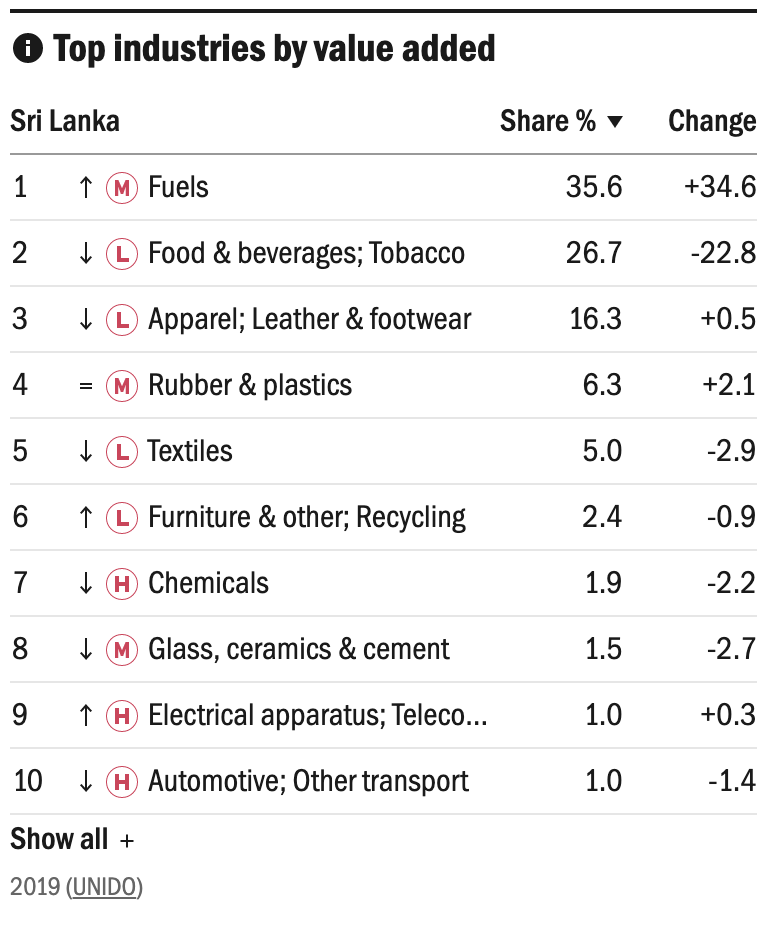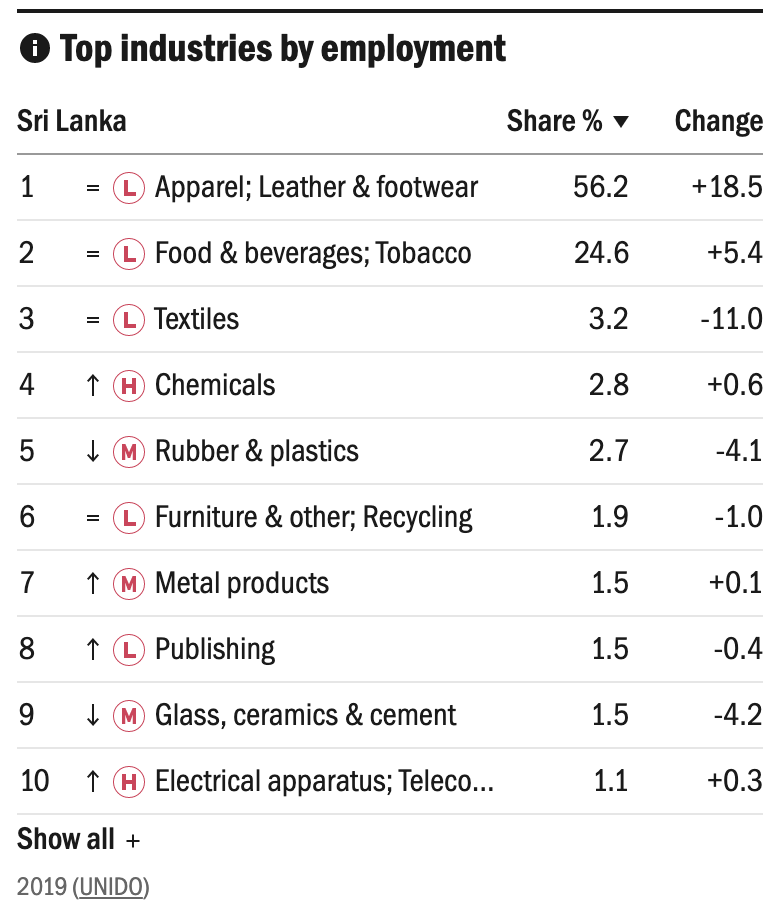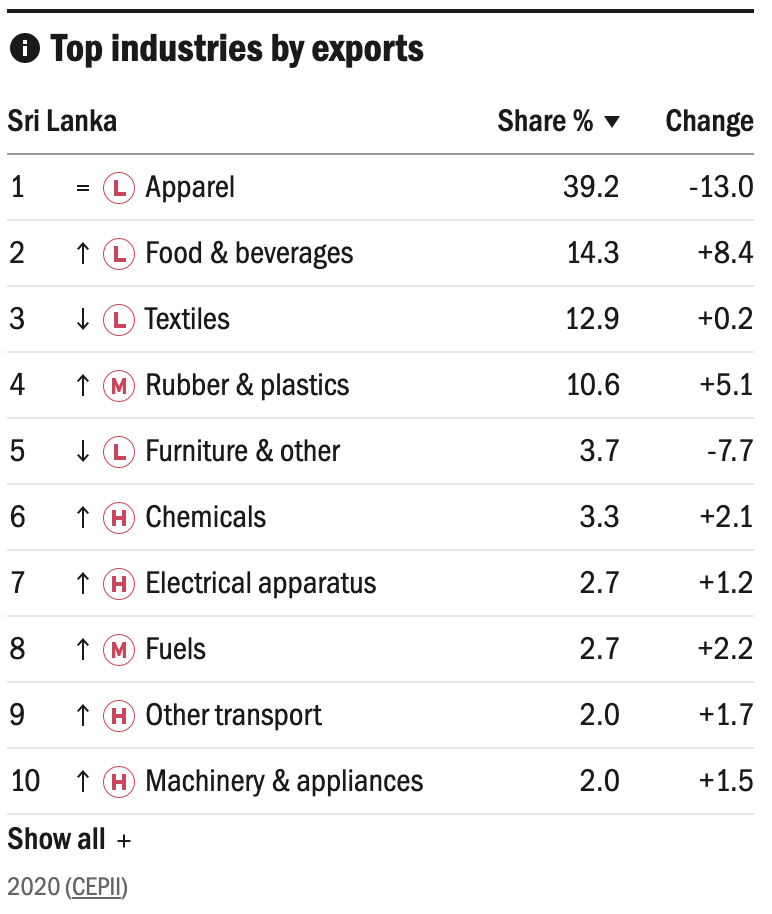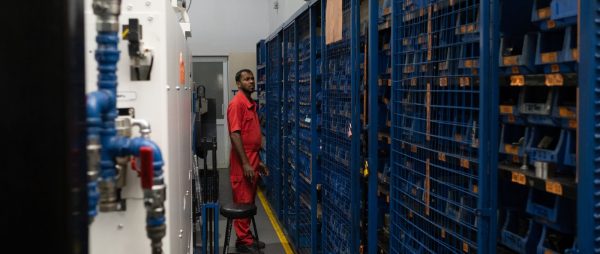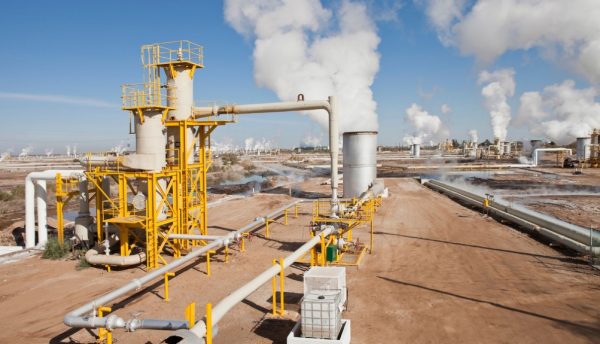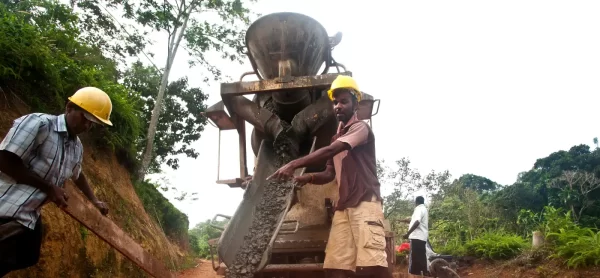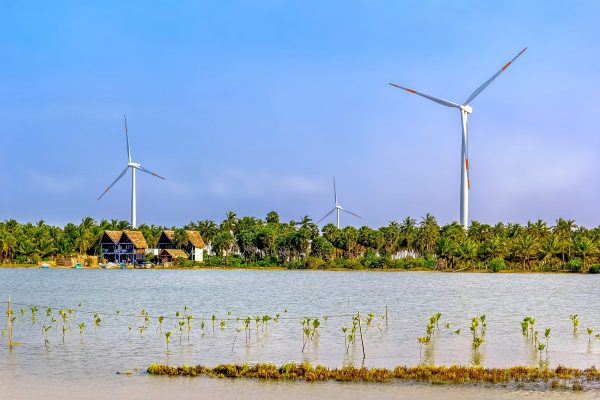Sri Lanka
This project phase has been completed.
Assisting Sri Lanka to transition to an urban economy with a low-carbon footprint
The island nation of Sri Lanka has great potential to reduce its carbon footprint, while building a modern economy based on sustainable fuels. In 2019 imported fossil fuels supplied more than half (55.4 percent) of the country’s energy demand, resulting in one of the highest average costs of power generation in South Asia.
As the country transitions from a rural-based to an urban economy, working with the industrial sector to accelerate decarbonization will be a key step in cutting greenhouse gas emissions as industry already accounts for 15.5 percent of the country’s GDP and is set to grow. By transitioning to renewable fuel sources and improving the efficiency of industrial processes, the sector will move closer to its 2030 target of reducing GHG emissions by 7 percent and ultimately the 14.5-percent national target.
Why is industrial energy efficiency important for Sri Lanka?
As the employer of almost 30 percent of the country’s workforce, the industrial sector plays a major part in people’s livelihoods. Supporting it to become more sustainable by transitioning to renewable energy sources and using energy and resources more efficiently will help to ensure that the sector can maintain its important role in the country of 21.3 million people.
In 2019, imported fossil fuels such as petroleum (44 percent) and coal (12 percent) supplied more than half of Sri Lanka’s energy demand. Power shortages in early 2022 revealed starkly the risk that situation posed to the industrial sector and to the country overall. Decarbonization of the sector will be an important step toward alleviating that risk and a more sustainable future, especially as the world transitions away from fossil fuels.
As an island nation, Sri Lanka is extremely vulnerable to the impacts of climate change and has consistently been placed among the top ten countries at risk of extreme weather events by the Global Climate Risk Index. Transitioning the industrial sector to a low-carbon future will help the country attain its Paris commitments, while contributing toward the global aim of reducing greenhouse gas emissions and limiting global warming.
What Sri Lanka is aiming to do
Sri Lanka has pledged to cut GHG emissions in the industrial sector by 7 percent by 2030. UNIDO’s current five-year Project, funded by the European Union, takes a comprehensive approach to helping advance the sector’s transition to a low-carbon future.
An initial key step will see the Project establish baselines of current GHG emissions in the sector and develop a measurement, reporting and verification (MRV) system to track them, as well as agree an industrial sector implementation plan with priority activities. Another focus will be to improve policy and regulatory frameworks and support stakeholders to gain the skills they need to effectively implement these.
The Project will also build capacity within industry on climate change mitigation practices, test new technologies and methodologies designed to improve energy and resource efficiency and reduce GHG emissions and replicate these where appropriate. Following a review of existing financing instruments, the Project will work closely with institutions to design and implement solutions targeted towards decarbonizing of the industrial sector.
Key service areas
Training and know-how
A centre-piece of the Project is training and capacity-building. For example, to improve the industrial sector’s energy and resource efficiency performance it will follow UNIDO methodologies to improving industrial carbon intensity by equipping local energy service providers and industry personnel with the knowledge, skills, methodologies and tools required to effectively implement three measures: The ISO 50001-compliant Energy Management System, Energy System Optimization and, building on existing in-country experience, Resource Efficient and Cleaner Production.
In developing an MRV system for GHG emissions, the Project will provide regular trainings and capacity-building on compiling GHG inventories and strengthen capacity to manage quality assurance/quality control of these inventories. It will improve institutional capacity to analyse and report data to support evidence-based policymaking and the design and implementation of mitigation measures.
Advocacy and policy support
With the goal of attracting investment in low-carbon technologies and best practices, the Project will help develop, promote and implement a coherent set of policies and regulatory measures. De-risking instruments and incentive schemes will also be designed, giving industry and financiers the confidence to invest. At the same time, to build momentum for change, the Project will also raise awareness among policymakers and financiers about the opportunities and benefits of low-carbon technologies. To support lasting change, the Project will train key officials in policy design, implementation, monitoring and evaluation, while also supporting highly polluting industries to comply with existing environmental regulations.
Financing solutions
The Project is working closely with policymakers, financial institutions and industry representatives in many areas. It is identifying risks, success factors, challenges and barriers for financing low-carbon technologies through a review of existing financing schemes and interviews with industry players, local banks and energy service providers.
It will also discuss and prioritize potential risk mitigation measures. This will result in the drafting of a programme for de-risking investment in low-carbon technologies and best practices and the design of a financing mechanism and de-risking instruments to support investment in low-carbon technologies, including instruments to ensure safe and quality installation and operation of low-carbon technologies.
The Project will provide training to industries and energy service providers on financial analysis and preparation of bankable investment proposals for low-carbon technology projects, and then identify an initial pipeline of such projects to be further developed into bankable proposals for financing.

Tailored support to MSMEs & SMEs
Through a series of dedicated small business interventions, including specialized training initiatives and policy advocacy, the Accelerator aims to help industrial micro and small to medium enterprises (MSMEs) cut down on their energy use. Industrial energy efficiency in the MSME sector has the potential to unleash masses of hidden economic potential which could help to trigger growth and job creation, not to mention a massive reduction in carbon emissions. Other efforts include working with governments to introduce energy efficiency labour competency standards specifically for industrial MSMEs.
Targets
industrial enterprises have implemented the ISO 50001 Energy Management System (EnMS) and Energy Systems Optimization measures.
low cost/no cost energy efficiency solutions implemented within targeted industrial facilities.
local energy efficiency professionals and practitioners trained in the design and implementation of industrial energy efficiency measures.
high impact and innovative low-carbon technology demonstration projects implemented.
bankable investments proposals generated for financing.
government officials trained in GHG emissions estimation methodologies
